Do you remember your time in a classroom? Perhaps there are flickering images of building with blocks, playing handball at recess, or you can possibly grasp the names of your teachers all the way back to kindergarten. Perhaps you remember running the mile in physical education, joining your first bake sale, or that time you wanted to learn to play the flute. Or perhaps your memories of school are about a social studies project, that teacher/coach/advisor/staff member who listened, or when you got the opportunity to help plan the prom.
Most people are able to pull something from their educational experience but rarely are the answers similar. What is it that we really remember?
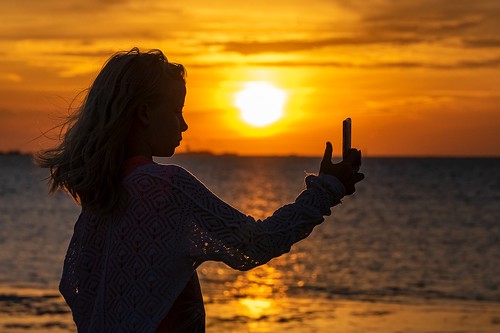
My nieces and nephews are still in primary school. My godson is in middle school, and my favorite fifteen year old is already in the second semester of her sophomore year. Ask them what they learn in school each day and you’ll get completely different answers. The little ones might say something about a project or a friend. The middle schooler will talk about rugby and engaging activities regarding out of the box thinking. And the teenager, well, if you can catch her on a day that doesn’t involve ‘fine and nothing’, she might tell you about her favorite subject or her passion project that is often after school at a horse barn.
While each of them is learning now, how do we keep it going when they graduate?
How do we embrace, bottle, capture and keep that light and desire to learn flowing after the schoolbooks slam shut?
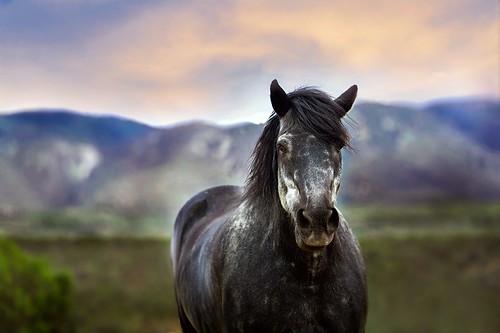
Travel and that travel mindset at home continue to show up. The elements we channel and project on those new adventures, the breakthrough moments where we conquer our own fears, the pushing aside of those comfortable barriers that continue to transpire - this is what we need to encourage in the educational arena. Unschoolers work toward this every day. From the moment a child is intrigued in something, learning is designed around that notion.
If your passion is horses, we figure out how to work history, business, art, and language around horses.
If your passion is model war games, we figure out how to support it with films and books, maths, maps, historical context, coding, and mechanical knowhow.
If learning languages is your thing, we find ways to dive into that new culture, try different foods, research the heritage, and utilize that translation ability in our daily deeds.
Why does this fierce drive tend to ebb as school finishes? How can we inspire the next generation to continue to dive headfirst into things they enjoy or are interested in after the educational world hands out its diplomas?
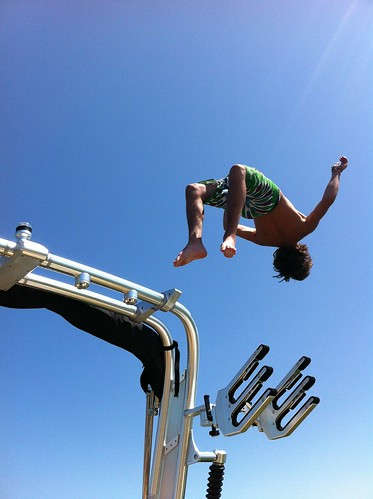
How do we facilitate or continue to foster that love of learning after our students are out of our reach? How do we inspire life-long learning when often school stops inspiring our learners? We bring back that travel attitude and fling that adventurous spirit to the forefront of the everyday. We encourage our young learners to remember their favorite thing about primary, middle, or high school.
We ask them to remember what it felt like to conquer a fear, try a new science experiment, have their opinion changed by a conversation with someone who believed the opposite of them, finally learn that new skill and to remember what it felt like to actively listen, the urge to learn and the desire to taste the possibility of discovery. Those feelings don’t go away; sometimes we only need to nudge them back to the surface and let them reinvigorate our minds and souls.
Perhaps then it was a love of horses, but now it’s a love of fashion.
Perhaps then it was building Legos, but today it’s a budding civil engineer.
Perhaps then it was a love of varied cultures and languages, and today it’s an up and coming international relations specialist.
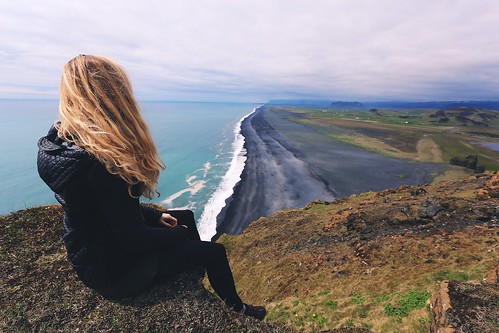
The love of learning can be present in life well after that traditional system of education kicks us all out. Whether we enroll in adult education courses, matriculate in further degrees, listen voraciously, read intently, travel, try something that scares us, participate with that which is different, or dive into learning something completely new–we engage, we reply, we show up, and that magic of learning reappears.
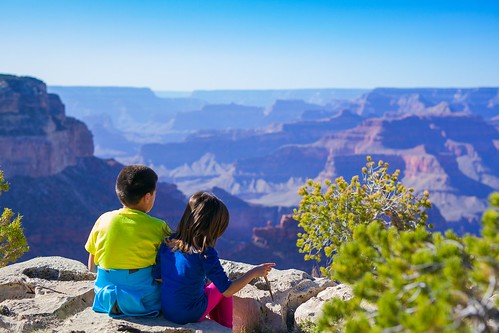
Actionable ideas to continue to spark that learning desire
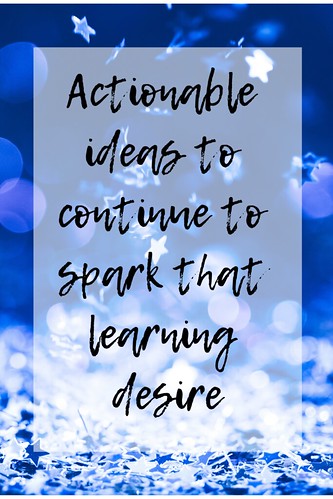
1. Encourage various methods of learning
In today’s world research happens with the tap of a finger, the click of a button, or the swipe of a screen. Whether you’re choosing to listen to podcasts or a teacher in a brick and mortar building, try something new in the comfort of your own home or go to an alternative studio, read an actual book or virtual ones, watch movies on devices of all kinds or head on out into the world to touch, taste, smell, and view other environs, there are ways to learn at every stage.
2. Inspire curiosity
When kids are little, everything is an adventure. We build forts with fierce energy, spend hours playing in the dirt, follow our friends on a journey to the other side of the park, and are excited whenever there’s a baby animal in the picture. Whether you’re hiking a mountain, using a new medium, trying something scary, walking into a new situation, finding yourself in foreign territory, or are talking to someone with a different background, remain open, stay curious, there’s always something new to uncover.
3. Foster seeking joy
Self-care and wellness regimens are the talk of the day. Somewhere along the line, the idea to put yourself on equal footing with others disappeared from our daily schedules…put it back. Remind kids, young adults, and older adults that we have permission to take care of ourselves, that we have permission to put the pen down and do what makes us happy, that we have permission to seek joy. Whether it’s taking a new class, getting up from that desk, meditating, trying a new workout routine, actually eating your lunch, making use of those vacation days, reading a book, hitting the trail, or whatever works to bring you back to your best self, do it! When we take care of ourselves, we can better take care of others.
4. Engage in discourse
In today’s world, we can converse, watch, listen, and communicate all without saying a word. Discourse is important. Debate is important. Face to face conversation is important. Sure, we might congregate with those whose beliefs and lives are similar to our own, but how will we continue to learn if we don’t engage in different discourse with various people? Seek those whose views are different, whose backgrounds are different, and whose lives are on a different course. Challenge your minds and views to continue to spark that lifelong learning.
5. Promote discovery
At a young age, we were awed when sunlight hit the magnifying glass, when mints mixed with soda caused an explosion, and when we found that rare coin while digging in the dirt. That spirit of wonder and amazement might be dormant, but it never really goes away. Whether you’re doing science experiments, trying a difficult yoga pose, testing your own abilities, exploring some place new, listening to intriguing podcasts, or reading new books, find a way to promote that continued discovery on your ongoing journey.
Stacey Ebert, our Educational Travels Editor, is a traveler at heart who met her Australian-born husband while on a trip in New Zealand. Stacey was an extracurricular advisor and taught history in a Long Island public high school for over fifteen years, enjoying both the formal and informal educational practices. After a one year 'round the world honeymoon, travel and its many gifts changed her perspective. She has since left the educational world to focus on writing and travel. She is energetic and enthusiastic about long term travel, finding what makes you happy and making the leap. In her spare time, she is an event planner, yogi, dark chocolate lover, and spends as much time as possible with her toes in the sand.
Check out her website at thegiftoftravel.wordpress.com for more of her travel musings.
